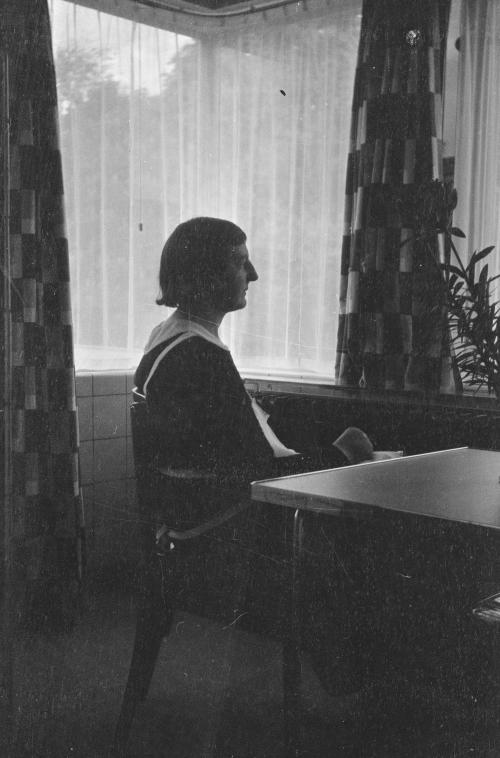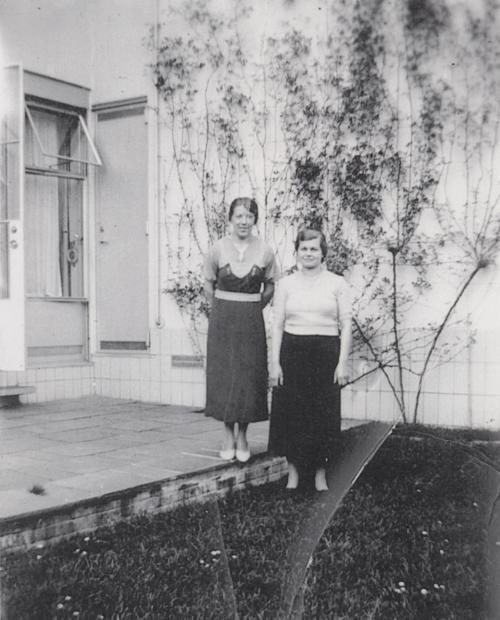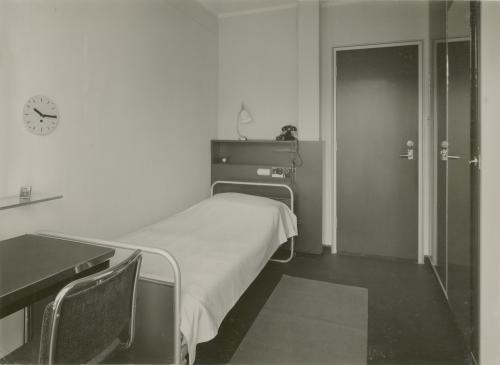7:30 breakfast
During her husband’s lengthy business trips, Mrs Sonneveld took charge of the housekeeping and the management of the family’s two maids. Jeanne Schreuder was nineteen when she began working for the family in 1931. Her older colleague Josephine Müller, known as ‘Finie’, came from Germany. In the 1920s and 1930s large numbers of unmarried German girls and women crossed the border looking for jobs in domestic service in Dutch homes.
The Sonnevelds’ maids earned 27.50 guilders per month plus food and accommodation. Mr Sonneveld returned home for lunch with the family. Mrs Sonneveld personally took care of ordering supplies and arranging the menus. The maids took it in turns to cook meals and ate when the family was finished eating. There was a bell on the dining table that set off a buzzer in the kitchen: a wire ran through the table leg to an electrical socket under the windowsill. The family could also summon the maids through the house telephone or through a system of buzzers connected to lamps: the colour indicated where the maids were needed: the bedroom, dining room/living room or the library.
The maids did not work on Wednesday evenings and alternate Sundays. Their working day lasted until coffee was served after dinner, after which they were free to spend time in their rooms listening to the radio or writing letters. The telephones in their rooms could be used for internal calls only. In addition to the two maids, the family also employed a chauffeur and a gardener.


